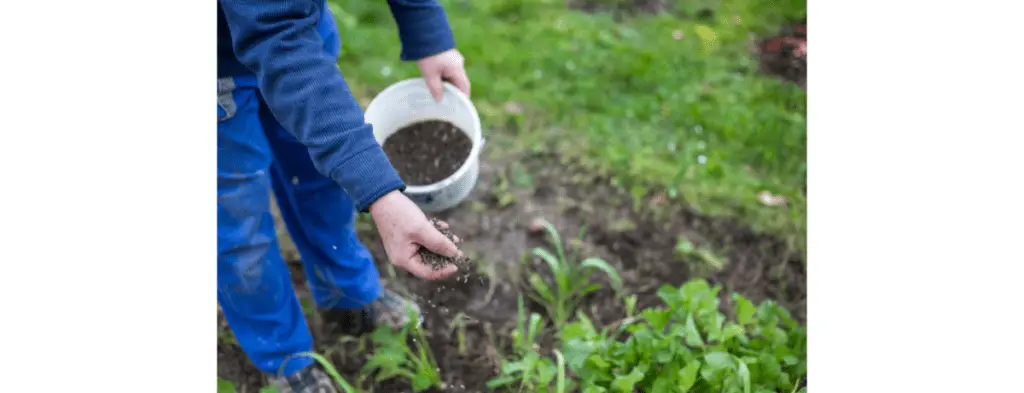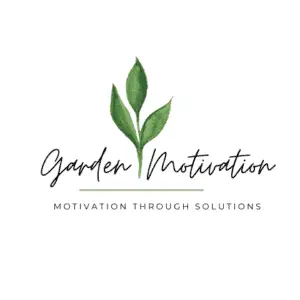
Fertilizing vegetables is a must if you wish to get some high-quality products and get the highest yields. However, finding the best fertilizer can be quite complicated, mainly if you are a new gardener. To keep vegetables healthy, they need to have all the necessary nutrients, including nitrogen and phosphorus. So, what fertilizer is best for a vegetable garden?
What do You Fertilize Vegetables With?
There are basically two types of fertilizers for vegetable gardens, inorganic (also known as synthetic) and organic. Organic fertilizers contain natural ingredients, derived mainly from plants and animals. This is great for the environment and will normally not harm your veggies. In most cases, vegetables need high levels of nitrogen. Thus, gardeners use supplemental organic fertilizer to provide their plants with quick feeding. For instance, you could supplement compost soil with manure tea or fish emulsion (paid link). The latter is rich in nitrogen, and you can easily sprinkle it around the vegetables every couple of weeks.
On the other hand, inorganic fertilizers may contain a variety of nutrients, some of which plants can take up immediately. However, there is also the case that some other nutrients in these products are released over time. That’s usually preferable since it allows for controlled release.
Another type of separation between fertilizers includes dry and water-soluble products. Dry fertilizers can be applied over the whole surface of the garden before planting (usually at 1 pound for 100 feet of row). After planting, you can additionally side-dress along the rows of your vegetables. Water-soluble fertilizers (paid link), on the other hand, are appropriate for use as a quick growth boost for your vegetables. This is why you should apply such a fertilizer at least once a week. Container-grown vegetables are the best candidates for water-soluble fertilizers.
When Should You Fertilize Your Vegetable Garden
In order to make your vegetable garden thrive, it’s important to fertilize the veggies when needed. Fruits and vegetables, in particular, need a high-quality fertilizer at the beginning of the growing season. At that period, you will be able to mix the fertilizer into the workable soil before planting. However, if you have already planted seedlings, you can still apply some granular fertilizer around your young plants. Liquid fertilizers are not a good choice in that case since they can burn the young roots of your plants. After adding the fertilizer, water in as much as needed.
Although fertilizing vegetables at the beginning of the growing period in spring is the general rule, there are several exceptions. For example, some vegetables, like lettuce, kale, and similar leafy greens should be fertilized a bit earlier. On the other hand, corn and squash are at their highest growth during the midsummer period, and thus, it is best to apply fertilizer just before that period of rapid growth. Two other categories of vegetables you should be careful with fertilizing are tomatoes and potatoes. Those veggies will normally require some additional fertilizing mid-season since they use existing nutrients. For more information about growing tomatoes, check out this post.
Vegetables growing in porous, well-drained soil need frequent fertilization. Most gardeners prefer to use a balanced fertilizer every four weeks throughout the growing season. In order to maintain continuous production, a good tip to follow is to not stop fertilization when the fruit appears
The same doesn’t apply to vegetables growing in clay soils. Such vegetables will normally need less fertilizer than those in sandy soils. Thus, you can fertilize six weeks after planting. If your garden contains sand enriched with organic matter, it is best to apply some additional fertilizer at intervals. Not sure what type of soil you have? Learn how to test your soil here.
What do The Numbers on Fertilizers Mean
Fertilizers may contain different ingredients, however, all of them come with three numbers in bold imprinted on them. These are the N-P-K ratio of the plant or else known as the fertilizer grade. Understanding these three numbers may seem difficult but is simple. The initials are referring to the three most important nutrients that plants need, nitrogen, phosphorus, and potassium. For example, if a fertilizer has the numbers 5-5-5 (paid link) written on it, it means that it consists of 5 percent nitrogen, 5 percent phosphorus, and 5 percent potassium. Likewise, a fertilizer with the number 5-10-10 means it has 5 percent nitrogen, 10 percent phosphorus, and 10 percent potassium. So, what about the rest of the fertilizer? It is filler (either sand or granular limestone).
In most cases, a balanced fertilizer (meaning that all the numbers are the same) is good for growing vegetables or flowers. However, a soil test is the only way to help you be sure of this. Check out our post on the Best pH for Garden Soil for more information.
Which Vegetables Should Not be Fertilized
One of the most common questions among people with vegetable gardens is which plants should not be fertilized. Thankfully, veggies that don’t need fertilizers can be easily grown in the same garden as other plants that need them. Bush beans, peas, southern peas, and mustard greens typically require no additional fertilizer when grown in soil that has been properly enriched with compost. Those plants are light feeders, unlike other types of vegetables, like cabbage, cucumbers, and onions which usually require a significant amount of fertilizer. Learn more about growing cucumbers and onions in these posts.
What’s more, animal manure that many gardeners use as a homemade fertilizer can cause problems when applied to root vegetables, like carrots, potatoes, and radishes. Why is that? Because such fertilizers may severely burn your crops. However, not all animal manure has been related to such issues. In fact, fresh or un-composted raw manure is the one to avoid. If you are wondering what vegetables do not like this type of manure, then the answer is vegetables that grow under the soil, as well as those sitting on the ground’s surface, like spinach and lettuce.
Using fertilizers can make our plants and vegetables grow better. However, it is important to know exactly when to apply fertilizer and the type of it that matches every single veggie best. Knowing the basics of fertilizing can help gardeners of every level of experience get the highest yields and make sure their precious veggies grow healthy all year long.
Looking for the best fertilizer for your fruit trees? Check out this post!
Organic fertilizers vs Synthetic fertilizers for plant food in vegetable gardening
Organic fertilizers are fertilizers that only contain naturally occurring ingredients. Popular forms of organic fertilizer is blood meal and worm castings. Synthetic fertilizers often contains pesticides or modified minerals. Organic fertilizer also releases and breaks down at a slow rate making it safer to avoid plant burn. Plant food is best used when applying to vegetables.
Best homemade fertilizer for vegetable garden
The best plant food fertilizer you can make at home is worm casting tea. This is great for vegetable gardening and vegetable plants love it. Simple mix 2 cups worm castings in to 1 gallon water. Spray this all-purpose fertilizer at the base of plant you can use this with granular fertilizer to meet the nutrients of vegetable and insure constant growing all season.
This post contains affiliate links. If you make a purchase through these links, we may receive compensation at no additional cost to you.


